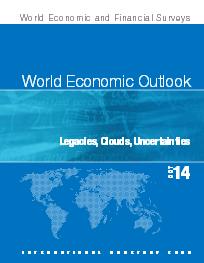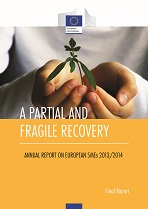Monthly CFM Survey: Secular Stagnation, Centre for Macroeconomic Survey, 03 Οκτωβρίου 2014. This month’s questions concern the revival of interest in the idea of secular stagnation. The survey was conducted in the last week of September. A full list of written responses from our panel of experts can be found here. Only 24% (27% if we weigh by confidence) of respondents think that the Western economies have entered a …Read More
The ECB’s Faulty Weapon
Gros, D. (2014) “The ECB’s Faulty Weapon“, Project Syndicate, 07 Οκτωβρίου. With inflation in the eurozone stubbornly remaining on a downward trajectory, pressure on the European Central Bank to do “something” to prevent outright deflation is growing. This “something” is usually understood to be massive asset purchases, or quantitative easing (QE). But would QE actually do the trick? The discussion has so far followed easily predictable national patterns: Creditor …Read More
Germany’s Bad Numbers Are Great News For All Of Us
Ilargi Meijer, R. (2014) “Germany’s Bad Numbers Are Great News For All Of Us“, The Automatic Earth Blog, 07 Οκτωβρίου. Something’s happening in Europe that I would like to cheer and encourage at the top of my lungs. While only yesterday, most European leaders, the ECB and the IMF were busy chiding Germany for not lowering taxes or increasing government investment in its economy, today’s release of German economic …Read More
Busts hurt more than booms help: New lessons for growth policy from global wellbeing surveys
De Neve, J. E. & Norton, M. (2014) “Busts hurt more than booms help: New lessons for growth policy from global wellbeing surveys“, VoxEU Organisation, 08 Οκτωβρίου. Wellbeing measures allow us to distinguish higher incomes from higher happiness. This column looks at new welfare measures and macroeconomic fluctuations. It presents evidence that the life satisfaction of individuals is between two and eight times more sensitive to negative economic growth …Read More
The myopia of neo-liberalism and the IMF is now evident to all
Mitchell, B. (2014) “The myopia of neo-liberalism and the IMF is now evident to all“, Mainly Macro Blog, 08 Οκτωβρίου. The IMF published its October – World Economic Outlook – yesterday (October 7, 2014) and the news isn’t good. And remember this is the IMF, which is prone to overestimating growth, especially in times of fiscal austerity. What we are now seeing in these publications is recognition that economies …Read More
Better together – a new hope for a federal Europe
Oomsels, P. (2014) Better together – a new hope for a federal Europe, EU Observer, 08 Οκτωβρίου. The victory of the No in the referendum on Scotland’s independence has saved the United Kingdom. However, it is clear that post-referendum UK will be different from pre-referendum UK. This is because, after promises of further devolution of competences made by Westminster, the Scottish No to independence can only be interpreted as …Read More
World Economic Outlook, October 2014: Legacies-Clouds-Uncertainties
IMF (2014) “World Economic Outlook, October 2014: Legacies-Clouds-Uncertainties“, World Economic and Financial Surveys, International Monetary Fund. Abstract The pace of recovery has disappointed in recent years, and downside risks have increased, including from heightened geopolitical tensions. These increased risks make it a priority to raise actual and potential growth. In a number of economies, an increase in public infrastructure investment can also provide support to demand and help boost …Read More
Annual Report on European SMEs 2013/2014: A Partial and Fragile Recovery
European Commission, “Annual Report on European SMEs 2013/2014: A Partial and Fragile Recovery“, Final Report – July 2014, SME Performance Review 2013/2014. The SME Performance Review is one of the main tools the European Commission uses to monitor and assess countries’ progress in implementing the Small Business Act (SBA) on a yearly basis. With an emphasis on the measures from the SBA Action Plan, the review brings comprehensive information …Read More
The Lost Consistency of European Policy Makers
Saraceno, F. (2014) “The Lost Consistency of European Policy Makers“, Sparse Thoughts of a Gloomy European Economist Blog, 06 Οκτωβρίου. Just a quick note on something that went surprisingly unnoticed so far. After Draghi’s speech in Jackson Hole, a new consensus seems to have developed among European policy makers, based on three propositions: Europe suffers from deficient aggregate demand Monetary policy has lost traction Investment is key, both as a countercyclical …Read More
Systemic equilibrium in a Bretton Woods II-type international monetary system: the special roles of reserve issuers and reserve accumulators
Austin, Κ. (2014) “Systemic equilibrium in a Bretton Woods II-type international monetary system: the special roles of reserve issuers and reserve accumulators“, Journal of Post Keynesian Economics, 2014, vol. 36, issue 4, pages 607-634. This article develops a model, based on balance-of-payment identities, of the new international monetary system (Bretton Woods II or BWII). It shows that if some countries engineer current account surpluses by exchange-rate manipulation and foreign-reserve …Read More






